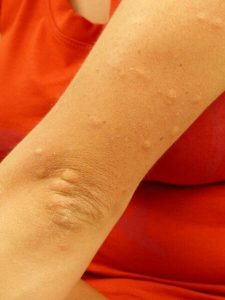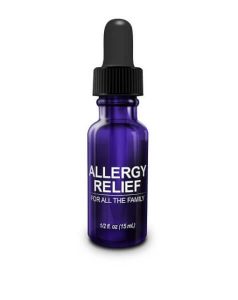The best kind of life is living it to the fullest. No fears, no restrictions; living each day as if it was your last. And then there’s allergy. Party pooper, right?
And why not? If you are a foodie, you may want to explore all kinds of cuisine that you can afford. Restaurant hopping sounds like a good fun for a weekend. But you are allergic to seafood, nuts, eggs, chicken, among others. What’s there left to eat?
You love to travel a lot. Backpacking to Southeast Asia is one of your dream travel destination in your bucket list. But you are allergic to smoke and dirt which are normal in third-world countries. How can you be able to explore these places whose name you can’t even pronounce?
Once you are born or have developed an allergy, the only thing you can do is to address and manage it. The first step is to subject yourself to an allergy evaluation. The question is, how much is an allergy test?
Average Cost of Allergy Test
The average cost of allergy testing ranges from $150 to $300 for an allergist consultation, $60 to $300 for prick test, which largely depends on how many allergens is used. The typical cost of each allergen for this kind of test is around $3 to $5. An average of around $200 to $1,000 will be spent for the blood test type or $10 to $20 per allergen.
For people with health insurance, the cost is not an issue as allergy testing is usually covered.
Additional Costs

The contributing factor that will tell you whether you will have additional expenditures aside from the allergy test cost is the result of the test itself. If the test subsequently reveals an allergy, an immunotherapy might be recommended. This treatment costs around $4,000 for the first year but the cost will decline over the period of three to five years, where a fewer number of shots will be needed.
Alternative allergy test would include home test kits which usually costs around $20 to $30 when bought online. Test kits that check for the 10 most common allergens cost around $50 and those testing kits done at home but need to be sent to a laboratory typically costs around $200 to $400.
Factors Affecting Cost of Allergy Test
How much is an allergy test depends on several factors? These include the following”
- Kind of allergy test – Choosing among skin, blood or challenge test to detect an allergy is the number one factor affecting the cost of allergy test.
- A number of allergens used – regardless of the method of allergy test, the cost is measured by the number of allergens used in diagnosing allergy.
- What clinic – allergy test cost depends on which clinic or hospital did the allergy test was performed. These facilities tend to have varying rates.
- Location – some areas have different cost of allergy testing. In some other countries like Canada, allergy tests are free for all its citizens.
- Health insurance coverage – if you have extensive health coverage, you pay less for the allergy testing or nothing at all, depending on the insurance company.
Shopping for Allergy Test
Allergy testing is usually done by referral. If your family doctor or your children’s pediatrician suspects that you, your child or any members of the family have allergies, he or she will usually refer you to an allergist. Or perhaps, will send you to an allergy testing clinic.
The American Academy of Allergy Asthma & Immunology (AAAAI) offers an allergist locator. Cleveland Clinic also entertains setting up an appointment through chat.
Types of Allergies
There are a lot of kinds of allergies known to man. Some so bizarre you cannot even begin to think they actually do exist. But some of the most common forms of allergies are the following:
- Food allergy
- Skin allergy
- Dust allergy
- Insect sting allergy
- Pet allergies
- Eye allergy
- Drug allergies
- Allergic rhinitis
- Latex allergy
- Mold allergy
When to Consider Taking an Allergy Test?
A lot of us are oblivious to what is really happening to our body that we often take for granted some of the warning signs it shows. When we constantly sneeze or having colds, we blame it on the weather. When we develop skin rashes, we blame it on the harsh chemicals of the bleach or detergent. Not knowing that it is a sign of a more serious condition. Because of the failure to notice the symptoms, a lot of people needlessly suffer from something that could have been avoided had it been addressed properly.
Some of the common symptoms associated with allergies are the following:
- Itchiness caused by rashes, hives and other skin conditions
- Constant sneezing, runny nose, and nasal congestion
- Difficulty breathing
- Itchy eyes, nose, and throat
- Abdominal pains, diarrhea, and vomiting after eating certain foods
- Watery eyes
- Severe reaction to insect bites and stings
Once you experienced these symptoms, especially when they occur more frequently, it’s high time to see an allergist.
Different Types of Allergy Tests
To determine whether or not you have allergies and to what kind allergens, allergy testing is performed. There are 3 basic types of allergy tests:
- Skin test – There are five methods of a skin test. These are the following:
- Skin prick test – This kind of skin test is done by placing a drop of allergen on the skin and then it will be pricked just enough for the solution to enter the skin. If after a few minutes, the area where the solution is placed developed a red itchy wheal or has became raised, that is a sign that you have an allergy for that particular allergen. Several types of allergen can be tested simultaneously in different parts of the skin, usually in the forearm.
- Intradermal test – This is done by using a very tiny syringe to inject the allergen underneath your skin. Usually, the area where the allergen was injected becomes raised right after and it is typically encircled by a pen so that the exact area will still be traceable. This is done because the skin will eventually flatten out in matters of minutes once there has been no adverse reaction from the allergens. This method is also used in hospitals when you are prescribed a new drug for the first time to check for any allergic reaction in your skin prior to administering the same intravenously.
Once you develop an itchy red patch around the area where the allergens were injected, then, you are positively allergic to that particular allergens.

- Skin patch test – this is done by placing the allergen on the patch which in turn will be taped to the patient’s skin, usually on the upper part of the back part of the body for 24 to 72 hours. The reading plate will be used to facilitate the reading of the patch test. The test can be interpreted 20 minutes after the test patch has been removed and one or two days thereafter. This kind of test is useful in detecting contact dermatitis.
- Skin scratch test – also called the percutaneous test. This test is done by placing a tiny drop of allergen onto the skin by scratching using a lancet. It is said that it is not commonly used because of reports of increased likelihood of infection.
- Skin scrape test – this test is done through the removal of the superficial layer of the skin using a bevel of a needle.
- Blood test – this method is simply done by drawing blood from the patient and sent to laboratories to be tested for allergies. The work is done to look for antibodies in the blood that the body produces in response to allergens found in food, air, and other sources. This kind of test is the most expensive type among all kinds of allergy test and takes longer to get the result.
Challenge test – as the name suggests, it is a test wherein a doctor would require you to eat or inhale a minimal amount of possible allergens to see if you would actually have an allergic reaction to them. Bear in mind that this is only done under close supervision of the allergist. Do not ever do it on your own.
